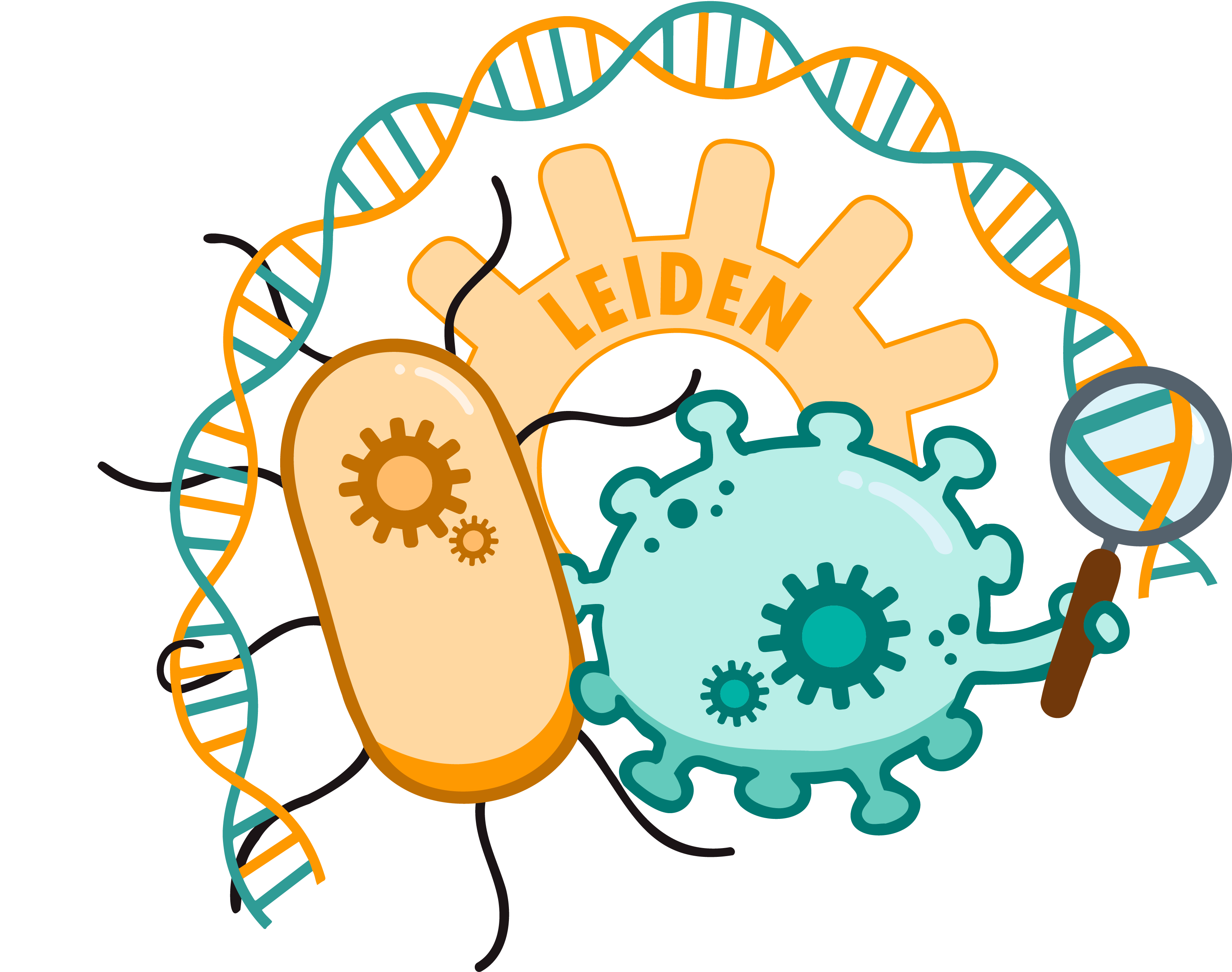Rapidemic: Rapid Diagnosis for Epidemics
Due to increasing globalization, severe infectious diseases are increasingly common. It is very important to identify an infected person as early as possible and in this way prevents the spread of the disease. That is why we as iGEM team Leiden are developing Rapidemic: a test method that can be used immediately in the event of an impending epidemic and with which we can test people quickly and on a large scale, all over the world.
We need your support to make this happen! Help us fund this research so that we can make a prototype and optimally prepare our world for future outbreaks.

Epidemics: A Growing Problem
Worldwide we see more and more outbreaks of pathogenic viruses. Due to climate change, deforestation and urbanization, humans and animals often live close together, with the result that harmless viruses mutate more quickly into very dangerous pathogens for humans. In addition, global travel has taken off, allowing infectious diseases to spread rapidly to every corner of the world. Respiratory infectious diseases have the greatest potential to develop into a pandemic due to their easy transmission. The most recent example of this is the coronavirus that is currently gripping the world.
Nip in the bud through early diagnosis
When the first corona cases came to light in the Netherlands, there was no capacity to directly test all potentially infected persons. People only had to be quarantined in case of complaints. But because people were found to be contagious before they had symptoms, the virus spread easily within our country. In addition, more infected people from abroad also entered our country unnoticed, causing new spread.
So testing before people develop symptoms is crucial to nip an epidemic in the bud. By having enough testing capacity immediately after discovering a roaming virus and testing every possible infected person, you can monitor the spread closely. You can then immediately isolate proven infected people and if the infection took place less than 48 hours ago, administering antiviral drugs can even completely prevent a person from passing on the virus and becoming ill.
Rapidemic: fast, versatile and can be used anywhere
That is why we develop a test method with one main goal: speed. Rapidemic can be used on a large scale for any respiratory virus that can develop into an epidemic. Unique to our method is that as soon as the virus DNA is known, the test can be made ready for use on location without a laboratory. The results are available within an hour after the test has been taken. In this way Rapidemic can be used in the field of the very first infections. In addition, our test method is also suitable for places where many travelers come together who may be infected, such as at airports. Rapidemic can even be used in remote areas with limited medical facilities.
Design, test and optimize
The test uses two existing and proven techniques, which have never been combined before. The combination makes it possible to detect the presence of genetic virus material in a saliva sample from a person. When the test kit detects the genetic material, it simply emits a color signal that can be seen with the naked eye.
It is important that these two techniques fit together flawlessly. That is why we test extensively with harmless pieces of genetic material to accomplish a proof-of-concept. We then optimize the reaction processes that take place in the kit with a mathematical model that predicts optimal conditions. In addition, we design the physical test kit that must be suitable for use outside a lab.

We need your help!
Help us develop a super-fast testing method that can nip future pandemics in the bud. With your support, we can purchase the materials we need to make a prototype of our Rapidemic test kit. Therefore, be faster than a virus and donate!
iGEM team Leiden 2020
We are a team of fourteen enthusiastic honors bachelor and master students from Leiden with different disciplines; from biology to chemistry and from bio-pharmaceutical to bio-medical sciences. The combination of our disciplines is the strength of our team and together we compete with teams from other universities in the international student competition iGEM. This annual competition is normally held in Boston at MIT University, but will take place online this year. The aim of the competition is to get started creatively with synthetic biology in order to find solutions to social problems.

The Leiden 2020 iGEM team from left to right: Eugene Golov, Masterstudent: Regenerative Medicine & Technology - Lucy Chong, Bachelorstudent Biopharmaceutical Sciences - Tom Langelaar, Bachelorstudent Biopharmaceutical Sciences - Amber Schonk, Masterstudent Biomedical Sciences - Tijn Delzenne, Masterstudent Biology: Molecular Genetics & Biotechnology - Kelly van Strien, Bachelorstudent of Biomedical Sciences - Aukje Beers, Masterstudent Chemistry - Sinisha Jovikj, Masterstudent Biomedical Sciences - Marijn van den Brink, Masterstudent Life Science & Technology - Tim van den Akker, Masterstudent Biology: Molecular Genetics & Biotechnology - Sebastian Tander, Masterstudent Biopharmaceutical Sciences - Violette Defourt, Masterstudent Biomedical Sciences - Joey Meijdam, Bachelorstudent Molecular Science & Technology - Güniz Özer Bergman, Masterstudent Biology: Molecular Genetics & Biotechnology
Follow us!
Our team is active on social media. Every week we post messages about our project, the online activities we organize and the online lectures we give. You can also subscribe to our newsletter. This way you will be kept informed of our progress.
Newsletter: You can sign up for our newsletter by e-mail.
Questions?
You can reach us through our social media channels or contact us at igem@science.leidenuniv.nl.
But aren't there already quick tests?
Several months after the outbreak of the current pandemic, antibody testing was in the news. These tests would be a quick test for corona. These types of tests can show whether the body has produced antibodies against the virus. However, with these tests you can only see if you have already had corona or are in a late phase of the infection, since only then will you have produced enough antibodies. With these tests you cannot say anything about whether people are in the early phase of an infection, while that is precisely what is important to stop the spread of an infectious disease. As promising as it first seemed, it turned out that these tests have many problems. It has been found that it takes considerable time to develop a reliable antibody test. In addition, we now see with the current corona virus that it is not yet clear whether everyone who has been infected will have antibodies left. This further questions antibody testing in a pandemic setting. The technique is therefore not suitable for rapid test development. Our kit, on the other hand, is designed precisely from the point of view of rapid development. The big difference is that our test is based on detecting the virus directly, rather than showing the body's response to the virus. The problems that arise with antibody testing are therefore circumvented thanks to our technique.
After the outbreak of an epidemic, the genetic code of the virus is made public a few days after a new virus is found in a patient. This allows scientists worldwide to investigate this new virus. As soon as this genetic code for a new virus is known, we can also get to work. We can then make the virus-specific part of our kit and process it in kits that are already ready. This way we can quickly assemble our kits and then have them tested and used. Using the test kit consists of two steps: first you make it specific for the virus you want to test for, then you test whether someone has that virus.











